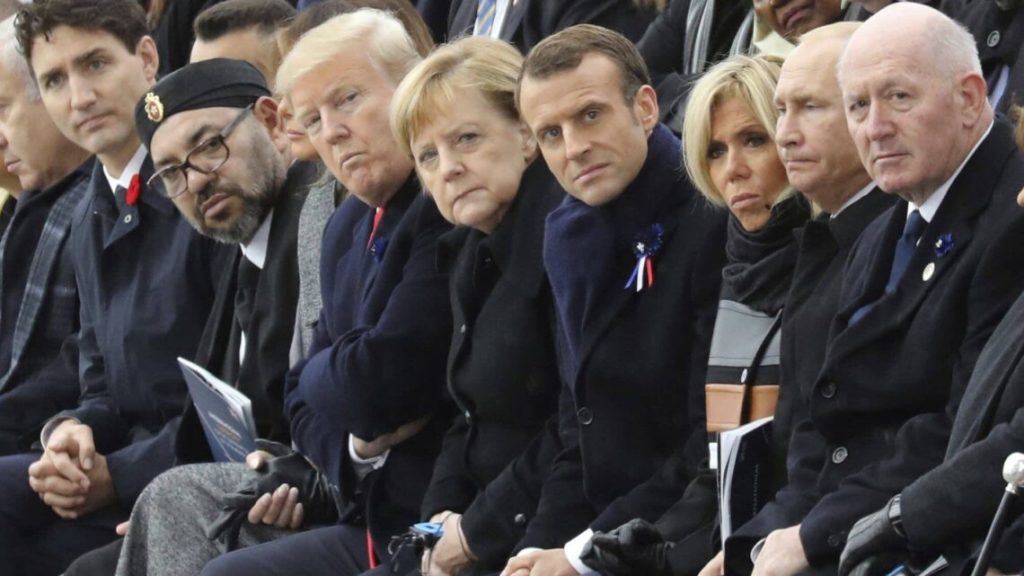By Kumail Mehdi
Updated on: November 6, 2024 / 5:16 AM EST
Donald Trump’s claim to victory in the 2024 U.S. presidential election, positioning him for a second term as leader of the world’s largest economy and military, has spurred a wave of global responses. The international reactions offer a revealing snapshot of shifting alliances, emerging anxieties, and varying expectations of how another Trump administration might reshape geopolitical dynamics.
Positive Support from Israel Amidst Regional Conflict
Israeli Prime Minister Benjamin Netanyahu was among the first to praise Trump, framing his re-election as a testament to resilience. “Your historic return to the White House offers a new beginning for America and a powerful recommitment to the great alliance between Israel and America,” Netanyahu stated, celebrating Trump’s win as “history’s greatest comeback.”
Netanyahu’s support is unsurprising, given the strained relations between Israel and the current U.S. administration over the handling of the ongoing Gaza conflict. The October 2023 attack by Hamas, which left approximately 1,200 dead and 250 kidnapped, ignited a war that has since claimed over 43,000 Palestinian lives, according to Hamas-run health authorities. Israel’s military has also targeted Hezbollah, resulting in over 3,000 casualties in Lebanon. Despite President Biden’s appeals for ceasefires, Israeli leadership remains unwavering in its military approach.
President Isaac Herzog also conveyed congratulations, emphasizing Trump’s role as a “true and dear friend of Israel” and an advocate for regional peace and partnership.
Hungary’s Viktor Orbán: A Familiar Ally
Hungarian Prime Minister Viktor Orbán, who vocally supported Trump even before the final ballot counts, described the victory as “a much-needed victory for the World!” Orbán’s admiration stems from shared anti-immigrant policies and a pro-sovereignty stance that isolates him within the European Union. His ties with Russia and President Vladimir Putin, particularly during Russia’s ongoing invasion of Ukraine, further distinguish him from mainstream EU leaders.
Orbán’s claim of direct influence in Trump’s policy-making underscores their ideological alignment. In past remarks, Orbán suggested he had “entered the policy-writing system” of Trump’s team, highlighting his involvement as strategic for Hungary’s interests.
Russia’s Subtle Optimism
Leonid Slutsky, head of Russia’s State Duma Committee on International Affairs, highlighted the potential for a more pragmatic U.S. approach under Trump, particularly regarding Ukraine. “Trump was and remains a big businessman in big politics,” Slutsky noted, suggesting that Trump’s administration might reconsider the extensive U.S. military and financial backing of Ukraine. A significant policy shift could alter the conflict’s trajectory and raise questions about the Ukrainian government’s stability.
President Putin, notably silent throughout the U.S. election, remains a key figure to watch as potential policy changes unfold.
A Cautious U.K. Response
U.K. Prime Minister Keir Starmer balanced diplomacy with acknowledgment of differing policies, extending formal congratulations while underscoring the enduring “special relationship” between the U.S. and U.K. “As the closest of allies, we stand shoulder to shoulder in defense of our shared values of freedom, democracy, and enterprise,” Starmer stated, reflecting on how historical ties transcend political shifts.
French and EU Leaders Highlight Strategic Caution
French President Emmanuel Macron, whose initial congratulatory message expressed readiness for cooperation, later signaled caution. In a second statement, he emphasized the importance of a unified Europe, signaling concerns over Trump’s past critiques of NATO and protectionist economic stances. Macron’s dialogue with German Chancellor Olaf Scholz reinforced the EU’s commitment to safeguarding European interests in this new political landscape.
Ursula von der Leyen, President of the European Commission, echoed these sentiments, emphasizing transatlantic collaboration and partnership. Her statement underscored the intricate balance the EU seeks to maintain: cooperation with the U.S. while preserving its own strategic priorities.
Conclusion
The range of international reactions underscores a world poised for potential recalibrations in global alliances and policies. Leaders closely aligned with Trump’s vision express hope for reinforced bonds, while others navigate cautious optimism, mindful of the potential impact on security, trade, and transatlantic unity. How Trump’s anticipated policies will unfold remains pivotal for global stability and future diplomatic relations.




